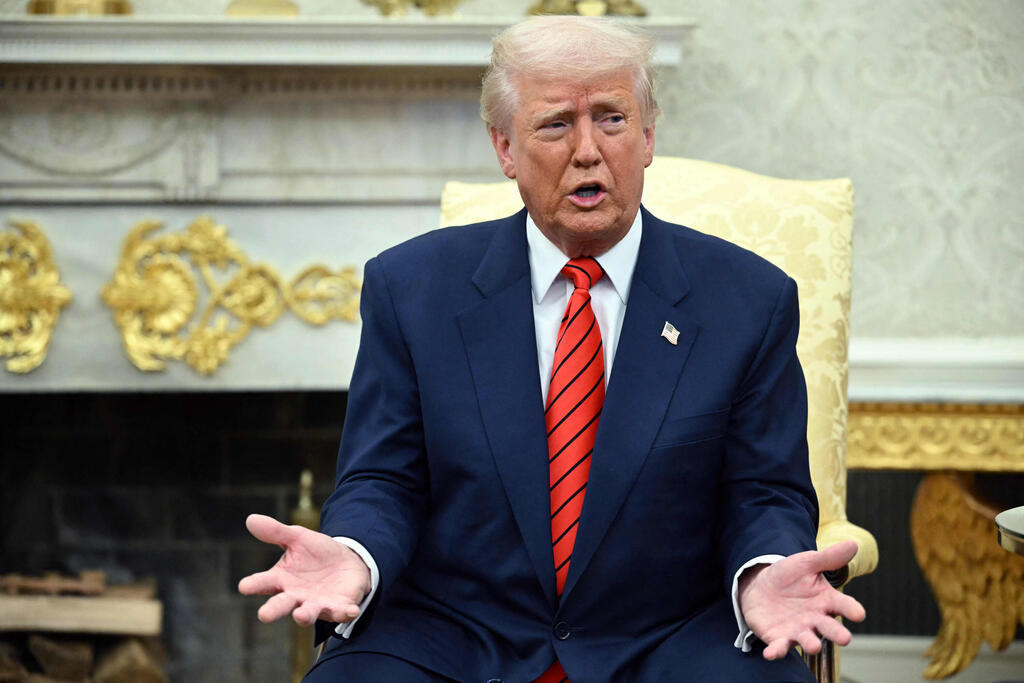Morgan Ortagus, Deputy Middle East Envoy for President Donald Trump, compared Hezbollah to a terminal illness during an interview on Tuesday with the Saudi English-language news channel Al-Arabiya. “When you have cancer, you don't treat part of the cancer in your body and let the rest of it grow and fester. When you have cancer and you want to be a whole patient, you cut the cancer out,” Ortagus stated.
Morgan Ortagus interview: He\zbollah is a 'cancer'
The American official, who serves as deputy to Middle East envoy Steve Witkoff, made the comments in response to a question about concerns that dismantling Hezbollah too quickly could lead to civil war in Lebanon. “We've been hearing that for 20 years. This is a designated terrorist organization with a lot of American blood on their hands. Ultimately, this all comes down to the Islamic Republic of Iran,” said Ortagus. “Part of the devastation that the Lebanese people face today, especially in southern Lebanon, was because of Iran and Hezbollah.”
Ortagus added that: “It was on October 8, 2023 that Hezbollah and Iran decided to get into the war, uh, which ultimately led for catastrophic consequences for the people.”
Lebanon’s leadership faces historic challenges
When asked if Lebanon’s government is acting quickly enough, Ortagus responded that the leadership in Beirut is dealing with a historic challenge. “It’s clear that the last 10 years have been devastating for Lebanon—financial collapse, the port explosion and, of course, the militias across the country, especially Hezbollah, which operates as a state within a state.”
Ortagus expressed cautious optimism, saying that she believes Lebanese President Joseph Aoun and Prime Minister Nawaf Salam genuinely care about economic reform, and that she found encouragement in her interactions with them.
Get the Ynetnews app on your smartphone: Google Play: https://bit.ly/4eJ37pE | Apple App Store: https://bit.ly/3ZL7iNv
She also addressed Lebanon’s dire economic situation and stressed the need for a monopoly on weapons within the country, emphasizing the importance of the Beirut leadership providing security and essential services in southern Lebanon, rather than Hezbollah. Ortagus acknowledged that the demands on Lebanon’s leadership are significant but insisted that, without action, the country could not be saved. She expressed confidence in Aoun and Salam’s ability to make the tough decisions required and assured that they would have U.S. support if they did so.
Ortagus was asked about the Lebanese army’s ability to meet its tasks at this stage. She expressed confidence, saying: “The Lebanese army can definitely do it. The United States has provided support, training and equipment for decades, and we continue to do so. We’ve even added military advisors on the ground.”
Trump’s approach to Iran
After Trump revealed that the United States is beginning direct talks with Iran, Ortagus emphasized that the president has extended a hand to diplomacy. She clarified that Trump made it clear Washington is unwilling to engage in years of indirect negotiations.
“They need to be serious about dismantling their nuclear weapon program we will absolutely extend the hand of diplomacy and be willing to talk. President Trump loves to get a deal. That's what he's always excited about when he can get a deal, but the deal has to not be where we're getting played,” Ortagus concluded.






